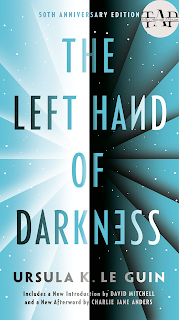The benefits of reading are infinite; they may lower your stress levels, make you happier, and raise your IQ. You should be familiar with the books to read before you die, regardless of whether you've already checked off some of the top novels or are just beginning to expand your literary horizons. The best books truly deserve the title of classics. These works, created by the greatest authors, contain a timeless topic, intriguing characters, and feelings that still hold today. Modern fiction has been greatly influenced by some of the greatest and most intriguing novels ever written.
These novels, some of which are well-known classics and others of which are contemporary giants, should all be read at least once before one passes away.
All About Love (bell hooks)

We're raised to believe that falling in love is an external event. It's a wonderful experience, but an entirely passive one. Famous social activist and feminist Bell Hooks makes the forceful and intensely personal claim that love is not at all as abstract or elusive as many of us have come to assume in her book All About Love. The book not only examines the importance of love in our lives and how our culture has perverted its meaning but also directs us toward a better comprehension of how to grow it by providing clear definitions and examples. You should read this book if you've ever wondered why some relationships endure while others fail.
A Good Man Is Hard to Find and Other Stories (Flannery O'Connor)

You'll be floored by Flannery O'Connor's debut collection of short stories, which she wrote in 1955. A Good Man Is Hard to Find and Other Stories were courageous for their day and yet seem important now. It is ruthless, perceptive, and full of subtext. O'Connor crafts misguided characters, and stunted curiosities in the Southern Gothic tradition, yet she manages to capture what's human in even the most repulsive of individuals, which makes their hopeless paths feel all the more heartbreaking. The stories are enjoyable to read because they are filled with tension, dark humor, and some of the most vivid imagery you will ever come across in literature. This is true even if the events that occur are distressing. All of this results in a collection that never stops surprising readers and begs them to be read again.
To Kill a Mockingbird (Harper Lee)
This timeless classic explores human nature and the 20th-century Deep South as a region of communal consciousness. With humor, the author explores hypocrisy, prejudice, hatred, love, and innocence to produce a fantastic tale that you are sure to adore.
The Book Thief (Markus Zusak)
This novel is set in 1939 in Germany. As Liesel struggles to save books from Nazi tyranny, the story follows her. Her family is also concealing a Jewish warrior who is residing in the basement of their house. You will learn about courage which is hard to come by in today's society as well as the friendship that may develop even under the most trying circumstances when you read this book.
2666 (Roberto Bolano)
2666, which Roberto Bolano finished in 2003, just before he passed away, is not only his greatest work but also one of the best and most significant books of the twenty-first century. It's the universe, one similar to our own in that it's full of terror, naivete, depravity, genius, and beauty. 2666, a work of modern literature that is epic in scope and the very definition of the "complete book," combines many diverse genres and styles into one memorable piece. Although Bolao's final work served as the high point of a tragically short literary career, his enormous talent, inventiveness, and vision live on.
The Lord of the Rings (J.R.R. Tolkien)
You will come to know the inhabitants of Middle Earth in this book. Middle Earth is a lovely and extremely large fantasy planet, full of purity but also prone to strife. Follow the hero Frodo Baggins as he sets out on a difficult adventure. You will undoubtedly be on the edge of your seat when reading this trilogy.
Things Fall Apart (Chinua Achebe)
There were not many English-language books that presented African life from an African perspective before the publication of Things Fall Apart in 1958. Even though the book opened doors for other writers in the years afterward, Chinua Achebe's insightful work is still regarded as a masterpiece of contemporary African literature. Achebe presents the narrative of Okonkwo, a strong-willed resident of a Nigerian community in the late nineteenth century, drawing on the history and traditions that have been passed down to him. We get an understanding of the complexities of village life and the intricate social dynamics at play as we follow Okonkwo's journey. After that, we witness the disastrous repercussions of European colonization on the area and on Okonkwo, whose ascent and fall are entwined with the shifting balance of power. People who desire a more nuanced knowledge of various cultures, how different lifestyles interact, and what being civilized truly requires should read Things Fall Apart.
Man's Search for Meaning (Viktor E. Frankl)

You've never read anything like Man's Search for Meaning. An account of Dr. Frankl's four years of losing everything in concentration camps in the first part of the book will leave you melancholy. Frankl struggles to live after being set free since his Holocaust experiences have left him broken. The second part of the book details how Frankl's experience at that time inspired and shaped his idea of "logotherapy," according to which life is about discovering what is significant to each person. Frankl's philosophy is infused with love, and despite how agonizing his experiences were, he was able to find atonement for both himself and others. Beautiful life-changing book.
Harry Potter and the Philosopher’s Stone (J.K. Rowling)
You've probably heard of this book. For millions of individuals, Harry Potter was an essential part of their formative years. You may travel with Harry in this book as he explores the Wizarding World and defeats Lord Voldemort. You'll come to know characters like Hermione, Ron, Hagrid, Dumbledore, and many more as you read these volumes.
The Hobbit (J.R.R. Tolkien)
You may have heard of or perhaps seen the movie, but every Lord of the Rings fan must read The Hobbit. It follows the valiant Bilbo Baggins on his journey through arid Middle Earth to face a dragon.
The Left Hand of Darkness (Ursula K. Le Guin)
The Left Hand of Darkness crushes gender stereotypes into fine, powdery dust in addition to being a masterwork of ideas, inventiveness, and language. The novel, which was published in 1969 and went on to win the Hugo and Nebula Awards, is regarded as one of the founding works of science fiction. Although The Left Hand of Darkness relates the tale of an ethnologist transferred to another world, it is Le Guin's imaginative abilities that elevate it to a genuinely sublime level.
Disgrace (J. M. Coetzee)
It's like a well-crafted, razor-sharp knife resting lightly on your skin. You never truly take a deep breath until it's all finished, but the unease and tension are there right from the start, rendered all the more potent by Coetzee's restraint and use of minimalist language. The novel, which is set in contemporary South Africa, examines what it's like to individually deal with pervasive prejudice. prejudices based on class, ethnicity, gender, and sexuality. This book is not a politically correct polemic; rather, it is about how we deal with life and how we survive as people. It makes the reader consider what initially seems to be a very bizarre reality. The remarkable novel's protagonists all find atonement through a process that ultimately reshapes their souls.
Romeo and Juliet (William Shakespeare)
The best novels to read do not necessarily have happy endings. This is quite likely the most well-known love story ever penned. William Shakespeare's Romeo and Juliet is a tragedy about the thrill of young love and the complexities of retribution.
Never Let Me Go (Kazuo Ishiguro)
This is the type of book that will have you reading it at work with the book covering your keyboard, hoping no one notices but yet not caring if you get fired. It's a delicate sci-fi narrative about youth, freedom, and a lot of other nice stuff – knowing too much about the storyline may detract from the magical, transformational experience of reading it. Instead, I'll add that the openness with which Never Let Me Go deals with love and disappointment makes it a novel that anybody who ever intends to love another person should read right now.
1984 (George Orwell)
George Orwell's dystopian and authoritarian society of 1984 is characterized by fear, control, and falsehoods. Examine Winston Smith's life as he fights with his nature in a world where free will, individuality, and love are forbidden.
Conclusion
You've probably heard the expression "So many books, such little time." While this is terrible, reading the books to read before you die listed above can help you avoid missing out on the classics. You could occasionally ponder the question, "What book should I read?" It's time to get started. Who knows, some of these fascinating books to read could have a significant influence on your life.















.png)





0 Comments